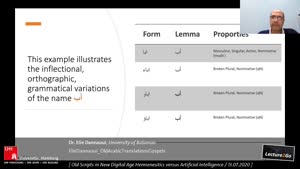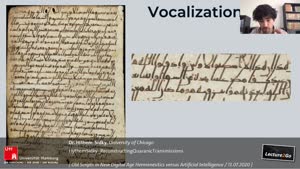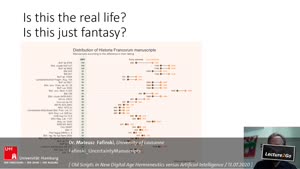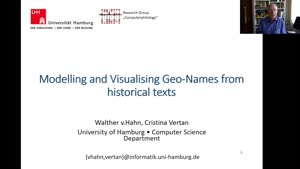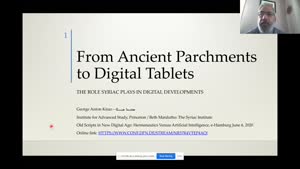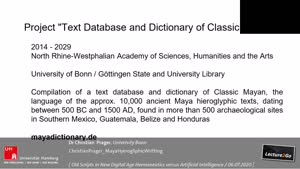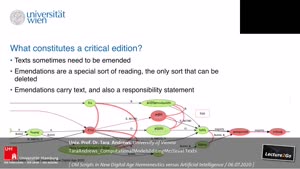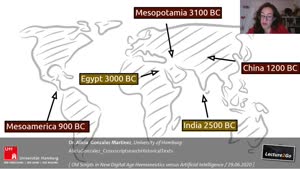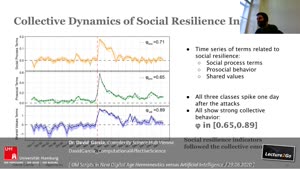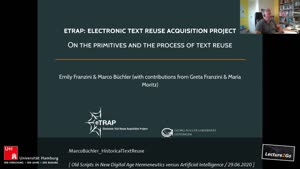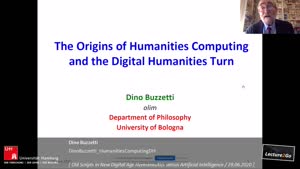AliciaGonzalez_CrossscriptsearchHistoricalTexts - Dr. Alicia Gonzalez Martinez - Universität Hamburg
- Lecture2Go
- Videokatalog
- F.6 - Mathematik, Informatik, Naturwissenschaften
- Informatik
- Old Scripts in New Digital Age Hermeneutics versus Artificial Intelligence
Videokatalog
AliciaGonzalez_CrossscriptsearchHistoricalTexts
Alicia Gonzalez Martinez, University of Hamburg, "Cross-script searching in historical texts: breaking the barriers of religion"
Proto-writing consisted of pictograms which represented basic objects or ideas. It soon developed into a more complex system that combines logographic and phonemic symbols. Contemporary writing systems are based on the same principle: they combine symbols of logographic and phonemic nature. The difference among them is how much weight each of the two types have and in which way they represent phonemic elements. Moreover, writing has been invented quite rarely in the history of humanity. Script borrowing is a common process when different cultures are put into contact, and it ends up being an essential part of the identity to the community that uses it. One of the strongest cases of this is religion. Religion typically adopts a specific script as an identitary mark. This causes that speakers of the same language may use different scripts depending on the religion they profess. Digital Humanities can help us create tools which let us make searches in the same language regardless of the script used to represent them. In this way, we would have unbiased results when searching into historical texts.
---
Einführungstext:
The digitalization campaign during the last years made available a big number of manuscripts, printed books, inscriptions, to a broad public. Most of them remain inaccessible for non-specialists for several reasons: the script cannot be deciphered, the language disappeared or its historical variants differ too much from the modern one, the semantics of the words changed or the conceptual space is completely different from ours. Computational methods and especially artificial intelligence offer powerful mechanisms to bring these rich cultural heritage assets into new light, made them transparent and more accessible for non-specialists and allow also more interdisciplinary collaboration. On the other hand, processing these documents implies often the rethinking and adaptation of established paradigms in the computer science and the embedding of principles of the ground method in humanities „hermeneutics”.
In this public lecture series, we invite internationally renowned scholars working in the cutting- edge domain of digital culture heritage to present current approaches of using computational methods on old scripts, show benefits, discuss the change of paradigm in humanistic interpretation and address also limitation of machines. The talk will address a broad spectrum of scripts and languages among them Arabic, classical Ethiopic, Coptic, Latin, classical Greek, old German.
The series of lectures is supported by the Project HerCoRe (https://www.inf.uni-hamburg.de/inst/dmp/hercore/projects.html) financed by the Volkswagen Foundation and the ERC Project COHBUNI (https://www.cobhuni.uni-hamburg.de/project.html)
Organisers: Dr. Cristina Vertan, Prof. i.R. Dr. Walther v. Hahn (MIN, Dept. Informatik), Dr. Alicia Gonzalez Martinez (AAI, Facultät für Geisteswissenschaften)

